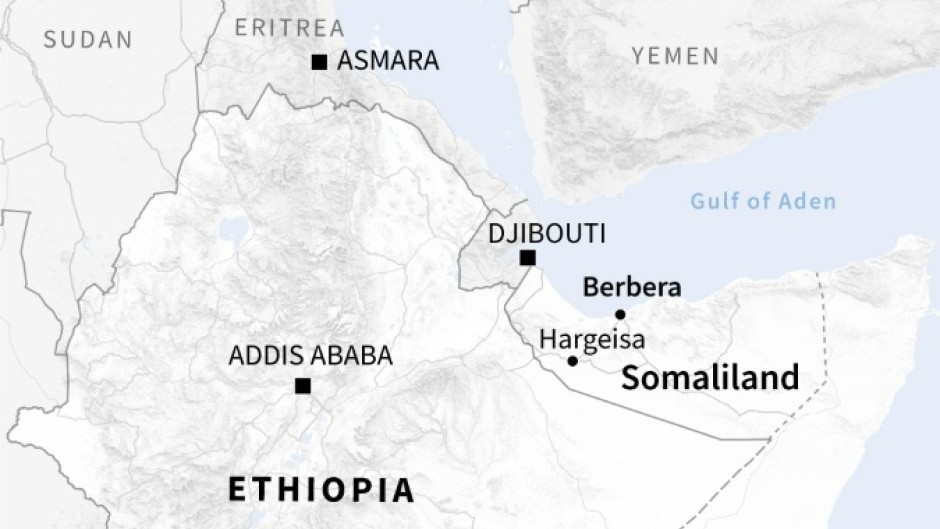Somalia on Thursday ordered the expulsion of Ethiopia's ambassador and announced the recall of its own envoy to Addis Ababa, accusing its neighbour of "bluntly interfering" in its internal affairs.
The diplomatic moves come as Somalia continues to seethe over a maritime deal Ethiopia signed with the breakaway region of Somaliland in January -- ratcheting up tensions in the Horn of Africa.
Somalia's foreign ministry said Ethiopian ambassador Muktar Mohamed Ware had been told to leave the country "within the next 72 hours" and that Mogadishu's envoy to Addis Ababa had been summoned back "for comprehensive consultations".
In addition, the Ethiopian consulates in Somaliland and the semi-autonomous state of Puntland have been ordered to close within seven days, it said in a statement.
"These measures were taken in the interest of safeguarding the sovereignty, unity independence and territorial integrity of the Federal Republic of Somalia," it added.
Somalia's cabinet in turn charged that the Ethiopian government was "bluntly interfering with Somalia's internal affairs and is in violation of Somalia's sovereignty".
- Long-desired sea access -
The two Horn of Africa neighbours have a history of stormy relations and territorial feuds, fighting two wars in the late 20th century.
Tensions spiralled this year after Addis Ababa signed a memorandum of understanding with Somaliland that gives Ethiopia -- one of the biggest landlocked countries in the world -- long-sought after sea access.
Under the January 1 pact, Somaliland agreed to lease 20 kilometres of its coast for 50 years to Ethiopia, which wants to set up a naval base and a commercial port on the coast.
In return, Somaliland -- which unilaterally declared independence in 1991 -- has said Ethiopia would give it formal recognition, although these assertions have not been confirmed by Addis Ababa.
The dispute stoked deep concerns about the stability of the Horn of Africa in the region as well as globally, with many countries and international organisations calling for Somalia's sovereignty to be respected.
Somalia's President Hassan Sheikh Mohamud has also accused Ethiopia of seeking to destabilise his country by helping to revive the activities of the Al-Shabaab jihadist group.
Mogadishu has been battling the Islamist militant group since 2007, and launched a major offensive against it in 2022.
Although the government has claimed some success, there has been a resurgence of attacks in recent weeks, shattering a relative lull in violence.
The latest moves by Mogadishu followed a visit on Wednesday by a delegation headed by Puntland's finance minister Mohammed Farah Mohammed to Ethiopia, where he was welcomed by the state minister of foreign affairs Mesganu Arga.
Puntland, which has long had difficult relations with the central government in Mogadishu, announced on Sunday it would no longer recognise federal institutions over changes to the constitution approved by parliament.
The Ethiopian government did not respond directly to the diplomatic moves, but the foreign ministry said the Puntland visit was not designed to "belittle" ties with Somalia.
"We have longstanding relations with Puntland," ministry spokesman Nebiyu Tedla told reporters, adding that the visit had been planned for a while.
- 'Ill-afford more conflict' -
Ethiopia, the second most populous country in Africa with 120 million people, has been searching for an outlet to the sea ever since Eritrea declared independence in 1993.
Somaliland is a former British protectorate of 4.5 million inhabitants and enjoys relative stability when compared to Somalia.
But it remains isolated because of the lack of international recognition, despite being on the Gulf of Aden leading to the Red Sea, one of the busiest shipping routes in the world.
Molly Phee, the top US diplomat for Africa, has called on Somalia and Ethiopia to resolve their dispute.
By Mustafa Haji Abdinur

